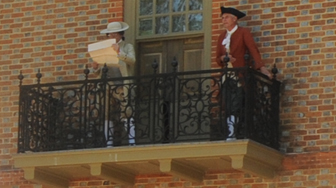Colonial Williamsburg, Virginia
Sunday, July 25, 2010
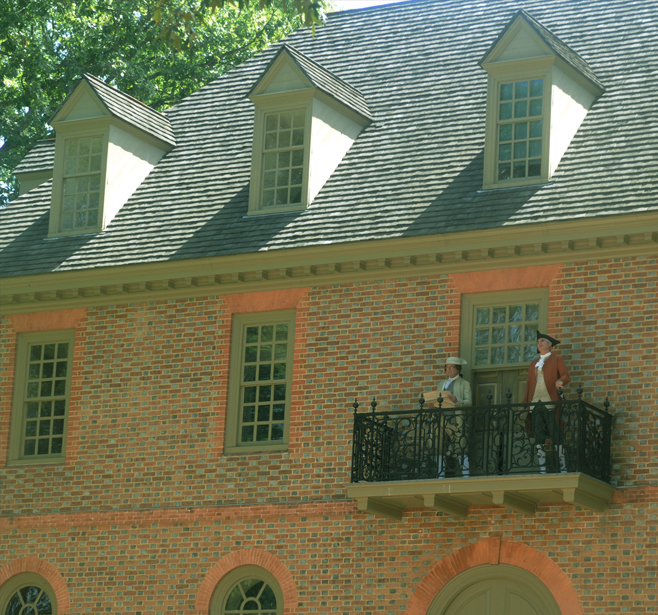 | On July 25 we were present for the reading of the Declaration of Independence in Colonial Williamsburg at the same place and same date on which it was read for the first time on July 25, 1776. Just 234 years ago! |
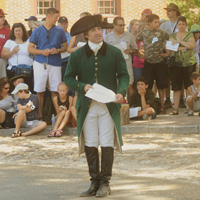 | 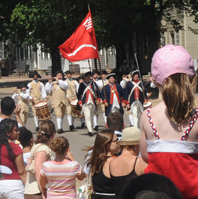 | 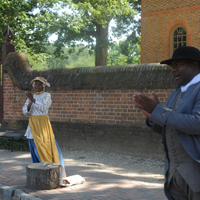 | 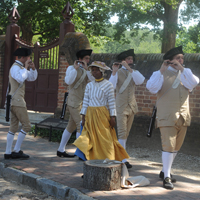 |
We all went to the Capitol of Colonial Williamsburg where General Lafayette explained that the Declaration of Independence would be read there. We watched as a colorgaurd and a fife and drum corps approached. A black man and woman and a white man and woman served as the spokespersons for the people. They waited as the fife and drum corps took its place.
The fife and drum corps plays before what we understood to be the original brick walls surrounding the Colonial Capitol building of Williamsburg. | 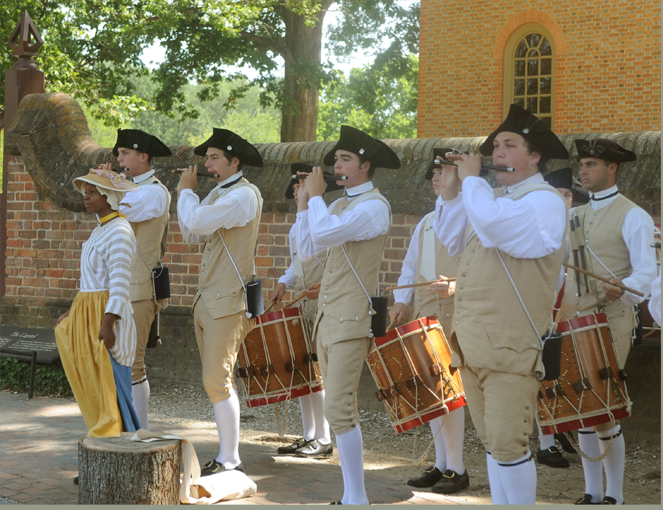 |
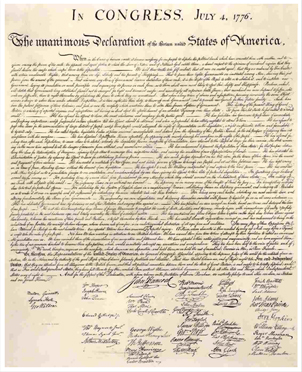 | When in the Course of human events it becomes necessary for one people to dissolve the political bands which have connected them with another and to assume among the powers of the earth, the separate and equal station to which the Laws of Nature and of Nature's God entitle them, a decent respect to the opinions of mankind requires that they should declare the causes which impel them to the separation.
|
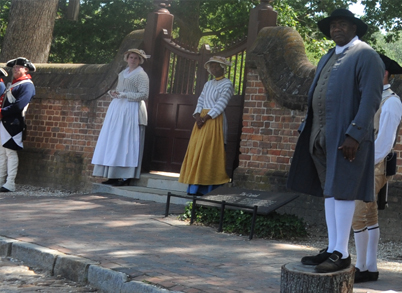 | ...and was continued appropriately in sections by the persons who represented the people of Williamsburg ... We hold these truths to be self-evident, that all men are created equal, that they are endowed by their Creator with certain unalienable Rights, that among these are Life, Liberty and the pursuit of Happiness. Ñ That to secure these rights, Governments are instituted among Men, deriving their just powers from the consent of the governed, Ñ That whenever any Form of Government becomes destructive of these ends, it is the Right of the People to alter or to abolish it, and to institute new Government, laying its foundation on such principles and organizing its powers in such form, as to them shall seem most likely to effect their Safety and Happiness. ... |
Prudence, indeed, will dictate that governments long established should not be changed for light and transient causes; and accordingly all experience hath shown that mankind are more disposed to suffer, while evils are sufferable, than to right themselves by abolishing the forms to which they are accustomed. But when a long train of abuses and usurpations, pursuing invariably the same object evinces a design to reduce them under absolute despotism, it is their right, it is their duty, to throw off such government, and to provide new guards for their future security. --Such has been the patient sufferance of these colonies; and such is now the necessity which constrains them to alter their former systems of government. | 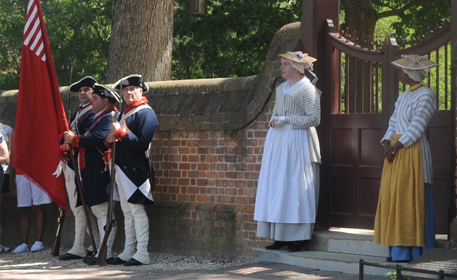 |
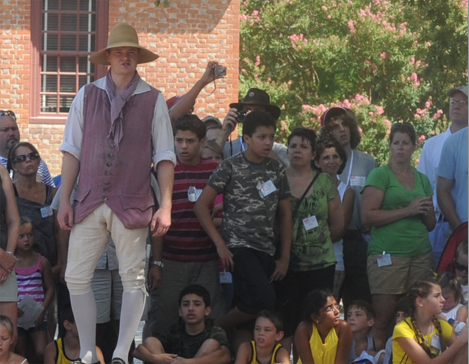 | This citizen of Williamsburg was fired up, and speaking from an actual stump. The history of the present King of Great Britain is a history of repeated injuries and usurpations, all having in direct object the establishment of an absolute tyranny over these states. To prove this, let facts be submitted to a candid world.
He has refused his assent to laws, the most wholesome and necessary for the public good.
He has forbidden his governors to pass laws of immediate and pressing importance, unless suspended in their operation till his assent should be obtained; and when so suspended, he has utterly neglected to attend to them.
He has refused to pass other laws for the accommodation of large districts of people, unless those people would relinquish the right of representation in the legislature, a right inestimable to them and formidable to tyrants only. |
He has constrained our fellow citizens taken captive on the high seas to bear arms against their country, to become the executioners of their friends and brethren, or to fall themselves by their hands.
He has excited domestic insurrections amongst us, and has endeavored to bring on the inhabitants of our frontiers, the merciless Indian savages, whose known rule of warfare, is undistinguished destruction of all ages, sexes and conditions.
In every stage of these oppressions we have petitioned for redress in the most humble terms: our repeated petitions have been answered only by repeated injury. A prince, whose character is thus marked by every act which may define a tyrant, is unfit to be the ruler of a free people.
| 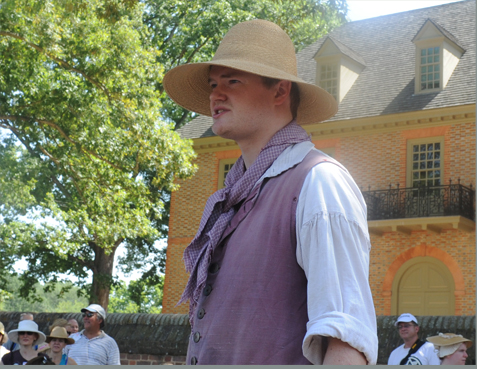 |
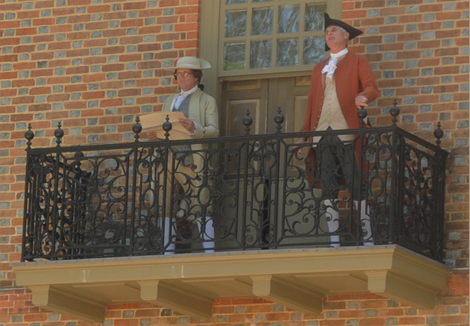 | We, therefore, the representatives of the United States of America, in General Congress, assembled, appealing to the Supreme Judge of the world for the rectitude of our intentions, do, in the name, and by the authority of the good people of these colonies, solemnly publish and declare, that these united colonies are, and of right ought to be free and independent states; that they are absolved from all allegiance to the British Crown, and that all political connection between them and the state of Great Britain, is and ought to be totally dissolved; and that as free and independent states, they have full power to levy war, conclude peace, contract alliances, establish commerce, and to do all other acts and things which independent states may of right do. And for the support of this declaration, with a firm reliance on the protection of Divine Providence, we mutually pledge to each other our lives, our fortunes and our sacred honor. |
The next scene on the south side of the Capitol depicted the time when British troops had taken control of Williamsburg under the command of Benedict Arnold. Every effort was made to show that there was real difference of opinion and ambiguity in the decisions to declare independence. | 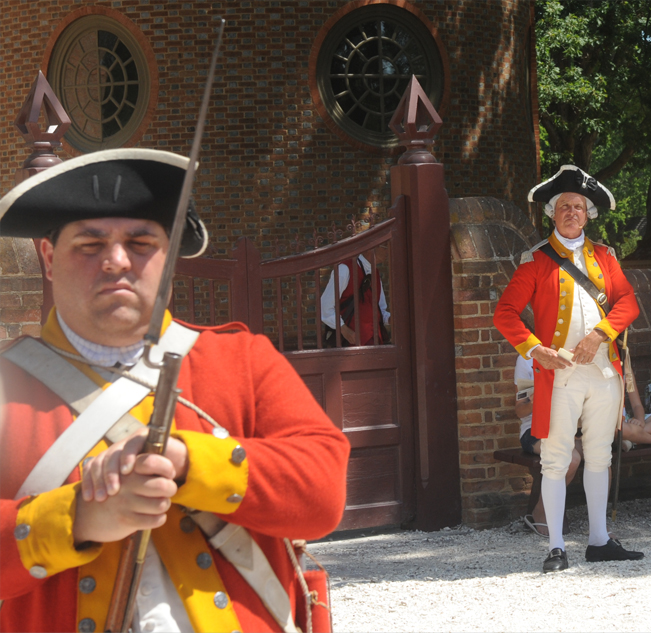 |
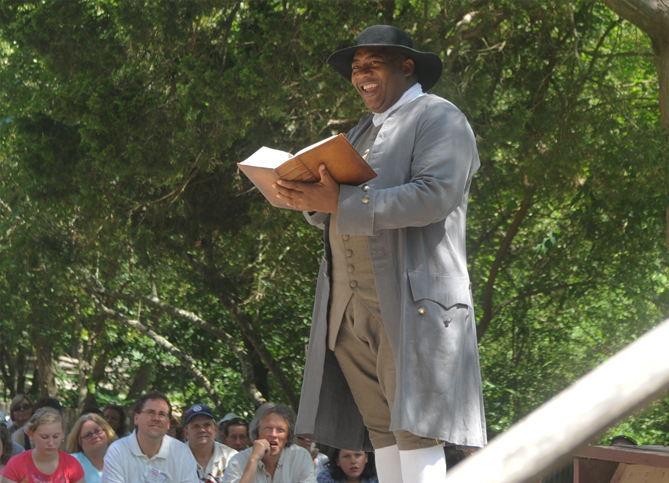 | The next segment was in the meeting area behind the coffee house where a black preacher read from Deuteronomy: "Be strong and courageous. Do not fear or be in dread of them, for it is the Lord your God who goes with you. He will not leave you or forsake you." Deut 31:6 |
This was actually one of the more impressive segments. He spoke of the benefits of free assembly for worship, unfettered by the rigid restrictions of the Church of England. Apparently the Church of England at the time specified how you had to dress, and limited what could be said in a service. The only one who could speak in a service was a minister licensed by the Church of England. It was an articulate and passionate plea to be able to worship freely and follow their own consciences. | 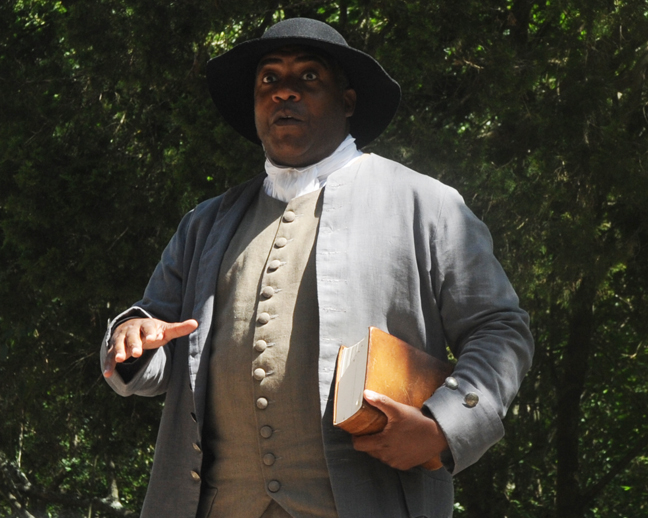 |
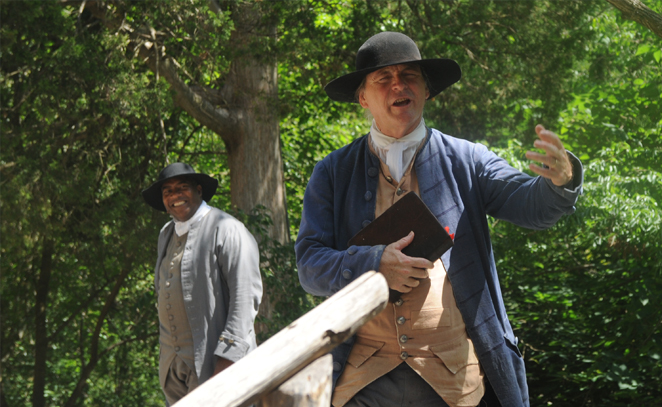 | He was joined by a white preacher who echoed his passion for free assembly and worship according to their conciences. He pled for freedom from the tithe that was required to be paid to the Church of England. The events portrayed are based on Gowan Pamphlet, an African American Baptist pastor, about Sep 28, 1781. |
They were joined by a young soldier who raised the question about how the poor would be cared for if they stopped the tithe, in effect a tax to the Church of England. Both preachers discussed the obligation of a free people to care for the needy. | 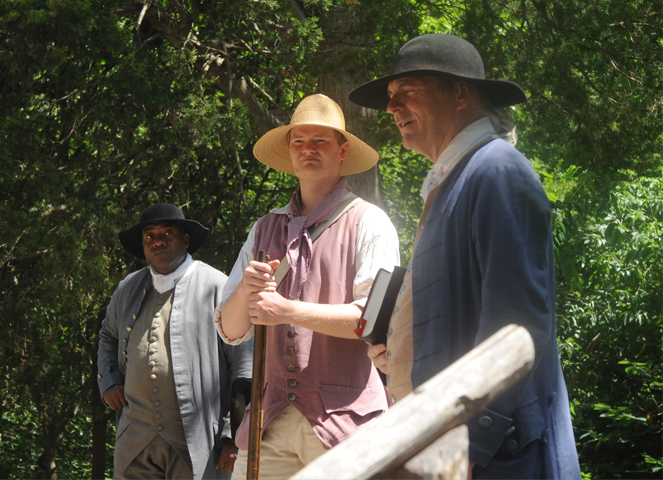 |
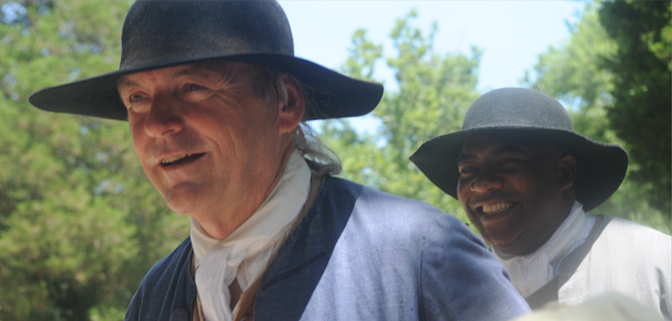 | In the final segment the young soldier shared his fear as he left to join his unit. As the preachers spoke to encourage him, he quoted back to them "Be strong and courageous. ... for it is the Lord your God who goes with you. He will not leave you or forsake you." |
At the last street drama location in front of the Raleigh Tavern, the general tells the people about final preparations for the march on Yorktown. The events portrayed were on September 28, 1781. | 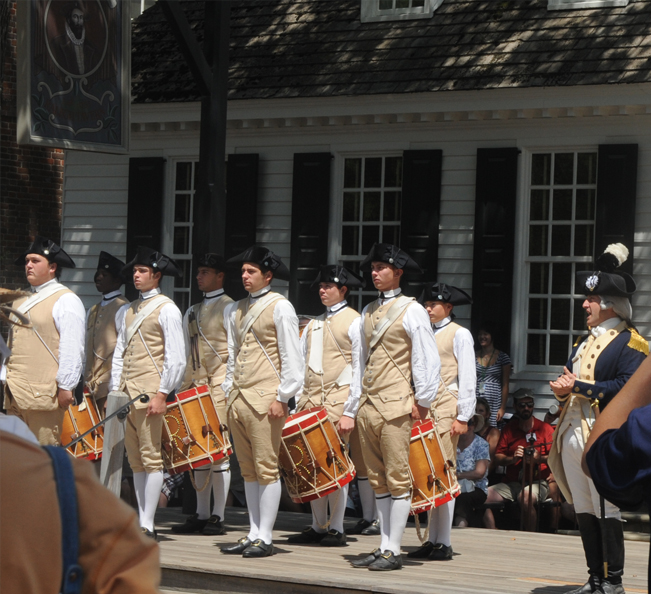 |
| More exploration of Colonial Williamsburg |
2010
